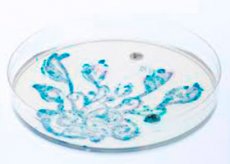Medical expert of the article
New publications
A culture test in pregnancy
Last reviewed: 04.07.2025

All iLive content is medically reviewed or fact checked to ensure as much factual accuracy as possible.
We have strict sourcing guidelines and only link to reputable media sites, academic research institutions and, whenever possible, medically peer reviewed studies. Note that the numbers in parentheses ([1], [2], etc.) are clickable links to these studies.
If you feel that any of our content is inaccurate, out-of-date, or otherwise questionable, please select it and press Ctrl + Enter.

A culture test during pregnancy is a mandatory test. Bacteriological culture refers to laboratory tests that involve growing bacterial colonies on nutrient media from a biological sample (biological fluid, blood, etc.). The test is conducted to identify which bacteria caused a particular disease, using a smear from the site of infection. In addition, culture can be used to determine which antimicrobial drugs the pathogen is most unstable to.
During pregnancy, a woman should take:
- Material for bacterial culture from the vagina (to determine the presence of sexually transmitted infections).
- Material for bacterial culture from the nose (to determine whether the pregnant woman has Staphylococcus aureus). This analysis should not be neglected, because the child after birth can easily become infected with Staphylococcus aureus, and this, in turn, is fraught with serious diseases of the baby's nasopharynx.
- Urine sample for bacterial culture (for diagnostics of latent bacterial cystitis, pyelonephritis). The analysis must be taken twice - at the first visit to the antenatal clinic and at 36 weeks of pregnancy. The sample must be collected after thorough toilet of the genitals, in a special sterile plastic container (can be purchased at a pharmacy).
Who to contact?
Bacterial culture test during pregnancy
Every expectant mother should undergo a bacterial culture test during pregnancy. This procedure is performed to identify pathogenic bacteria in the expectant mother's body that can provoke pathological conditions that complicate the course of pregnancy. Bacterial culture is a laboratory method for identifying the causative agent of a particular acute or chronic infection. The material used is biological material taken from a possible source of infection. A small amount of mucus, blood, urine, feces or bile is used for bacterial culture, applied to a nutrient medium. If the sample contains a pathogen, it forms a colony of bacteria within 3-7 days when it enters favorable conditions. In addition to isolating the pathogen, bacterial culture can be used to determine whether the pathogen is sensitive to a particular antimicrobial drug.
Most often, pregnant women are prescribed the following bacteriological tests:
- Bacterial culture of vaginal smear. Necessary to exclude diseases of the genitourinary system, which are especially dangerous for the life and health of the unborn child.
- Urine culture. Necessary if there is a suspicion of inflammation of the urinary tract.
- Bacterial culture of mucus from the nasal cavity to detect Staphylococcus aureus. In the postpartum period, this pathogen can cause serious diseases in the baby - purulent skin lesions, tonsillitis, conjunctivitis, etc.
If the bacterial culture test during pregnancy is positive, the pregnant woman must undergo appropriate treatment and retake the test until negative results are obtained.
 [ 5 ]
[ 5 ]

